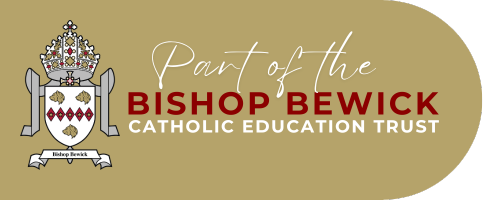
MATHEMATICS
MATHEMATICS
INTRODUCTION:
At St Stephen’s Primary School, we believe that maths is an essential life skill and that by providing a well-planned and coherent curriculum, every pupil is capable of success. We strive to ensure that all pupils develop a positive, confident attitude towards maths so our pupils become life-long mathematicians.
Our carefully designed mathematics curriculum ensures progression from The Early Years Foundation Stage through to Year Six, provides a foundation for understanding the world, the ability to reason mathematically, and a sense of enjoyment and curiosity about the subject. As children work through the curriculum, they build upon previous knowledge to solve ever-increasingly complex mathematical concepts over time. We want pupils to make relevant connections across mathematical ideas to develop:
Fluency
Mathematical reasoning
Competency in applying knowledge and skills to solve problems
Mathematics is delivered through daily lessons and consolidated through regular basic skills activities which drives fluency in arithmetic. Staff refer to the National Curriculum and Early Years Foundation Stage Profile, along with St Stephen’s curriculum planning documents, when preparing a sequence of lessons. This is also implemented through the school’s calculation policy, White Rose Maths, Target Your Maths and other online resources deemed appropriate by the teacher. This ensures learning is varied and incorporates reasoning and problem-solving tasks throughout. It also avoids over reliance on published scheme materials.
Pupils are given time to practise and perfect their calculation strategies and understanding, including encouraging them to make appropriate decisions when estimating, calculating, and evaluating the effectiveness of their chosen methods. Lessons, at the teacher’s discretion, often start with retrieval, revision or reinforcement activities linked to prior learning before encountering new material. Feedback is given to pupils at the first appropriate opportunity and is designed to ensure pupils are well informed about their progress and how they can improve.
To assist the planning process, teachers use our whole school calculations policy and progression documents are used as a teaching and reference tools to ensure that strategies are age appropriate and sequentially build on prior learning.
We deliver our maths journeys using a spiral learning approach which is based on the following three main principles:
Recurring: Learners return to the same topic many times, through their school career
Deepening learning: Every time pupils return to a particular concept it must be explored in more complexity and be learned at a deeper level
Prior Knowledge: A pupil’s previous knowledge must be used when they revisit the same concept so that they build from the foundation instead of starting from the beginning
For example, Year 1 cover addition and subtraction within 20, then transfer these skills to cover addition and subtraction to 100 in year 2, moving onto solving addition and subtraction crossing hundreds in year 3, then addition & subtraction of 3 & 4-digit numbers in year 4. As they make this learning journey, pupils will encounter frequent opportunities to practise and apply their growing knowledge and mathematical skills in problem solving and reasoning activities. As with the core learning material, these activities increase in terms of challenge and complexity as pupils progress through their learning journey. Each unit of work is headed with a cover sheet showing previous learning, the next stages of learning, key vocabulary, and key skills and knowledge pupils are expected to acquire within that particular unit of work.
Teachers use a range of formative and summative assessment activities to make judgments on pupils’ progress throughout lessons and across units of work.
Quality-first teaching is the primary method that we use to deliver the education of those with SEND. Evidence tells us that high-quality teaching and learning is the best way to support the learning of SEND pupils. Where necessary, pupils may receive or access adapted tasks to enable them to access the curriculum at a level that is suited to their ability. Quality-first teaching is progressive and caters for children’s needs in the short, medium and long term.
All children from year 1 to year 6 receive weekly times table practice and where appropriate, homework tasks which are used to reinforce current class learning. EYFS pupils are given practical maths homework tasks on Tapestry.
We believe our pupils will:
develop a positive attitude that demonstrates and use their mathematics confidently within their daily lives
solve problems, reason, think logically, and work systematically and accurately
become fluent in the fundamentals of mathematics
make mathematical links with other areas of the curriculum and become aware of the uses of mathematics in the wider world
develop personal qualities such as resilience, determination, perseverance, independent thinking, cooperation, and self-confidence
Above all, as pupils make their way through school, and the mathematics curriculum, they will increase their mathematical knowledge so they can ‘do more’ with it in terms of application and use.



